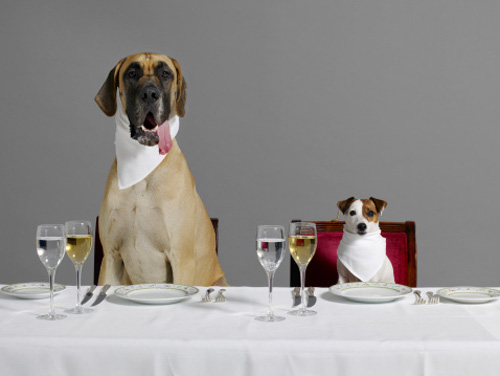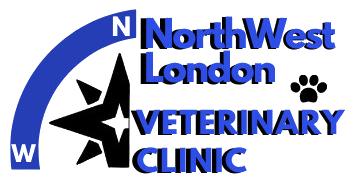Holiday Foods That Are Dangerous For Pets

Poultry Bones
The cooking process causes poultry bones to dehydrate and become brittle. If your pet eats them, they can splinter and puncture his stomach or intestines. To prevent accidents and eliminate the temptation for counter-surfing, dispose of the carcass once the turkey is carved and clear the table when you’ve finished eating.
Turkey Skin
Many holiday foods, like turkey skin and gravy, are high in fat and difficult for pets to digest. These types of food can cause a very painful illness known as pancreatitis, which also leads to vomiting, diarrhea, and weakness. No special treat is worth taking that chance. So if you’re not going to eat it, toss the turkey skin in the bin.
Alcohol
We all know that alcohol poisoning is a human reality. But did you know that alcohol is even more toxic to pets than people? Combine their smaller size and lack of tolerance, and sharing your adult beverage could land you at the emergency veterinarian. Signs that your pet is in trouble are staggering and decreased reflexes followed by a slowing respiratory rate, cardiac arrest, and death. The best way to protect your pets is for you and your guests to keep your drinks well out of the reach of curious noses.
Onions
Garlic and onions contain thiosulphate, which causes red blood cells to burst in cats and dogs and can lead to hemolytic anemia. Onions presents the highest risk of toxicity – eating a very small amount can have severe affects. Symptoms to watch for include shortness of breath, lethargy, vomiting and diarrhea. Garlic contains significantly less thiosulphate, and whether pet could ingest enough to cause harm is questionable. In small doses, the health benefits of garlic appear to outweigh the potential risks.
Various Types of Nuts
Macadamia nuts and pistachios are very rich in fat and can cause pancreatitis, discussed above. In addition, macadamias reportedly contain an unknown toxin that might result in neurological symptoms. Pets have difficulty digesting almonds, walnuts, and pecans, and these nuts are large enough to cause an intestinal obstruction for smaller animals. There are definitely other snacks your pet would prefer.
Chocolate
Chocolate contains theobromine and caffeine, both of which are toxic to cats and dogs. Different forms of chocolate contain more or less of these substances, with dry cocoa powder having the most and white chocolate having the least. Dogs and cats have excellent noses, so it’s easy for them to sniff out your hiding spots. Be sure to keep your chocolate in a place safe from pets.
Grapes and Raisins
In 1989, a computerized toxicity database helped veterinarians identify grapes and raisins as the cause of sudden kidney failure in dogs. Although the actual toxin remains unidentified, it’s clear that raisins contain a more concentrated amount – ingesting just small amounts has been fatal for both cats and dogs. Vomiting and hyperactive behavior are the initial signs of poisoning. Diarrhea can occur, and after 24 hours, the pet may be come anorexic, lethargic and depressed. Ultimately, the kidneys can fail. So, it’s important to keep any desserts, dressing, or fruit baskets that contain raisins or grapes well away from your cat and dog.
Doughs with Yeast
It may sound unlikely, but your pet’s stomach is the perfect environment for bread to rise. Raw dough eaten by your pet can expand inside his stomach and result in vomiting, severe abdominal pain, and bloating. When preparing dinner rolls or desserts, make sure your pet doesn’t taste-test the goodies before they’re finished.
Nutmeg
This popular spice, commonly used to season pumpkin pie, sweet potatoes, and my favorite holiday beverage, Tom and Jerry’s, should never be fed to your pets. Nutmeg, which has mild hallucinogenic properties, can cause seizures, tremors, and central nervous system problems. In severe cases, shock and even death have been reported. Plain pumpkin and sweet potatoes are good for your pets, so set aside a bit to share with them before adding other ingredients.
Milk
Because pets do not possess significant amounts of lactase (the enzyme that breaks down lactose in milk), milk and other dairy products can give them diarrhea or other digestive upset which can lead to dehydration. Take care to limit the amount of dairy products your pets eat as part of other foods you might give them.
In Conclusion
If you simply can’t resist your dog’s or cat’s puppy-dog eyes, here is a suggestion: stuff a little taste of turkey, a smidgen of plain sweet potatoes, a few green beans, and a dollop of mashed potatoes in a KONG. Yes, they make KONGs for cats! A small amount of food will keep him busy for a long time. And you’ll be able to enjoy your meal without guilt.
If your dog or cat eats one of the holiday foods that are dangerous for pets, call the Society for the Prevention of Cruelty to Animals Pet Poison Control at 1-888-426-4435 or your local emergency pet clinic.
https://www.gopetfriendly.com/blog/10-holiday-foods-that-are-dangerous-for-your-pets/
